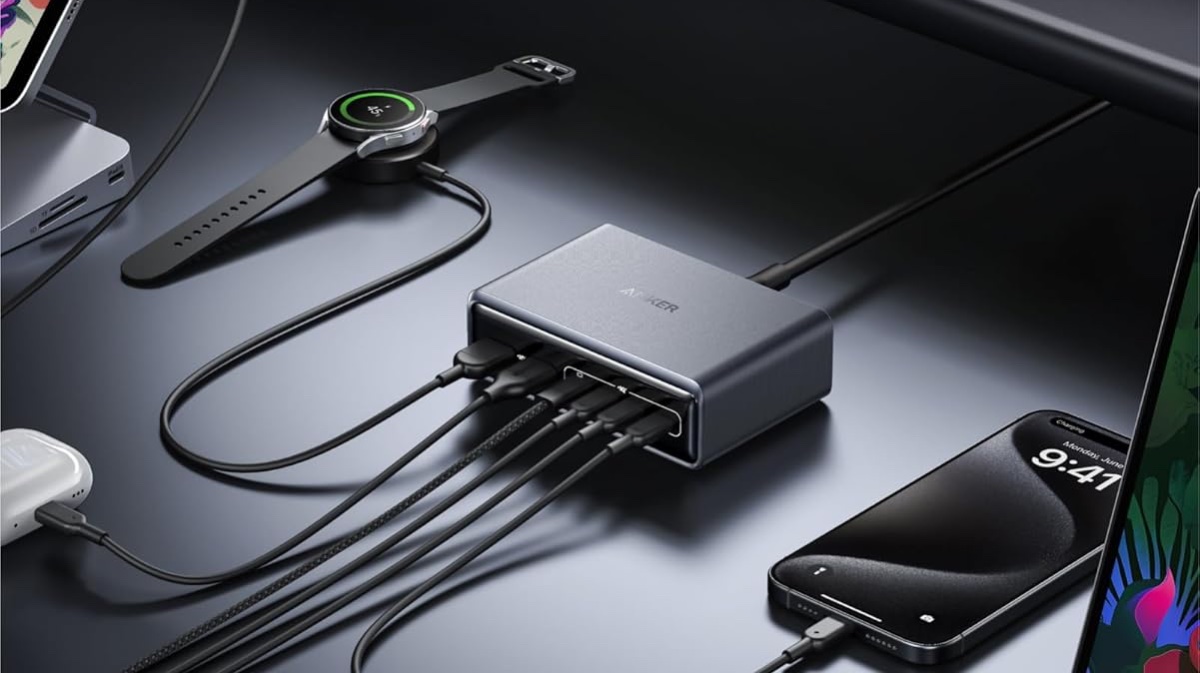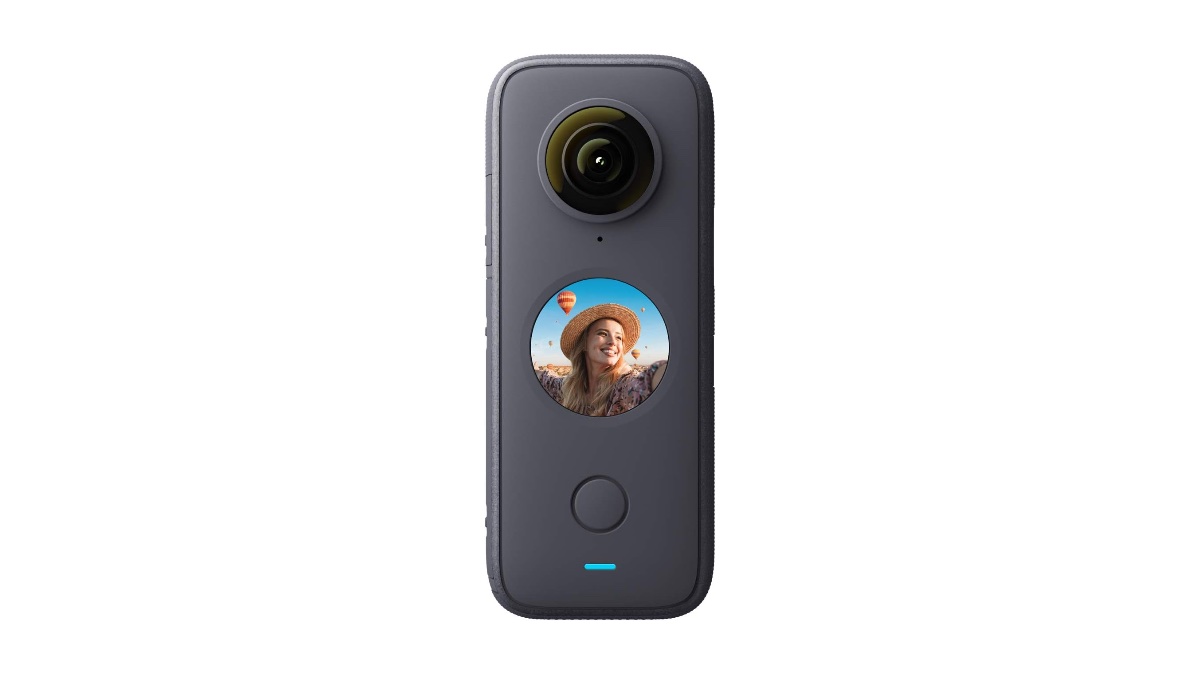It’s hard to buy a bad pair of wireless earbuds these days, and with constant discounts and deals wherever you look, now is as good of a time as any to splurge on the pair you’ve been eyeing. The market has come a long way since the early era of true wireless earbuds when we had to deal with mediocre sound quality and unreliable performance, all for the sake of ditching cables. Things are much different now. After several product generations of learned lessons, companies like Sony, Apple, Samsung, and others are releasing their most impressive earbuds to date.
You can get phenomenal noise cancellation and sound quality in the premium tier of earbuds if you’re willing to spend big. But those aren’t always the most important criteria for everyone: maybe you’re looking for the perfect fitness earbuds or for a set that works just as well for Zoom calls as for playing your favorite playlists and podcasts.
Tech companies are increasingly making their earbuds work best with their own products through exclusive features and functionality, so that’s another thing to consider as you shop around. If you want a perk like head-tracking spatial audio, you’ll need to use AirPods with an iPhone, Samsung buds with a Samsung phone, and so on.
The best overall wireless earbuds
Sony’s flagship WF-1000XM5 noise-canceling earbuds improve upon the previous model with richer sound quality, slightly more powerful ANC, and vastly improved comfort thanks to their reduced size and weight.
Noise cancellation: Yes / Battery life: 8 hours (ANC on) / Water resistance: IPX4 / Bluetooth codecs: LDAC, AAC, SBC / Multipoint: Yes / Works best with: Android, iOS, Windows, macOS / Ear tips: Foam (XS, S, M, L)
Just like their predecessors, Sony’s newer WF-1000XM5 earbuds have again topped our recommendations for the overall best noise-canceling earbuds. Thanks to their larger drivers, the audio quality is more detailed and dynamic than before while still retaining the warmth and clarity that made the 1000XM4 so enjoyable. Sony has also further improved its ANC and is nearing the same territory as Bose’s QC Earbuds II. These earbuds do a terrific job of eliminating background noise. Battery life can stretch to eight hours of continuous listening with noise cancellation turned on.
Some people found the WF-1000XM4 to be bulky and uncomfortable, so this time around, Sony has managed to shrink the XM5 by 25 percent. Like before, the company includes foam-style tips that expand in your ears to create an excellent seal — and now there’s a fourth (extra small) set of tips in the box.
On Android phones, the 1000XM5 support Sony’s LDAC codec for higher-quality music playback. And they’re capable of dynamic head tracking spatial audio through supported video apps like Netflix. But even if you’re not using LDAC (or have an iPhone), these are up there with the very best audio-focused premium earbuds like Sennheiser’s Momentum True Wireless 4 — with substantially better noise cancellation to boot. They’re also capable of multipoint Bluetooth, so you can pair with two devices at the same time.
It’s worth noting that there were many reports of battery issues with the 1000XM4 over time as those earbuds aged, but Sony claims to have rectified that problem with the new model by tweaking the charging algorithm.
Read my Sony WF-1000XM5 review.
The best budget earbuds under $100
$99
Nothing’s Ear (a) earbuds have the same general design as the company’s previous earbuds — but you can get these in a snazzy yellow. They include ANC, more than decent sound quality, and other features like multipoint for just under $100.
Noise cancellation: Yes / Battery life: 5.5 hours (ANC on) / Water resistance: IP54 / Bluetooth codecs: LDAC, AAC, SBC / Multipoint: No / Works best with: Android, iOS, Windows, macOS / Ear tips: Silicone (S, M, L)
When looking at Nothing’s Ear (a) earbuds, it’s easy to focus all your attention on the catchy yellow color or their fun, super compact carrying case. But at their $99.99 price, the company’s entry-level earbuds provide a ton of features, including active noise cancellation, a low-latency mode for gaming, multipoint Bluetooth pairing, and a decent IP54 dust and water resistance rating.
And the sound quality you get outperforms my usual expectations for this price point. They’re not quite on par with Nothing’s higher-end Ears, but you do get expressive, very enjoyable audio — and you can customize the EQ further in Nothing’s mobile app.
Read my Nothing Ear (a) impressions.
The best noise-canceling earbuds
With dynamic, rich sound and the best noise cancellation available in true wireless earbuds, the Bose QuietComfort Ultra Earbuds are a terrific pick if you want to listen to your music in peace.
Noise cancellation: Yes / Battery life: 6 hours (ANC on) / Water resistance: IPX4 / Bluetooth codecs: AAC, SBC, aptX Adaptive / Multipoint: No / Works best with: Android, iOS, Windows, macOS / Ear tips: Silicone (S, M, L)
Bose’s QuietComfort Ultra Earbuds are the most powerful noise-canceling earbuds on the market. Of all our top picks, they do the best job at offering peace and quiet from the cacophony of daily life and putting you in a private bubble with your music playlists or favorite podcasts.
The QC Ultra Earbuds are extremely similar to 2022’s QC Earbuds II in terms of design, fit, and sound. Audio quality is rich and dynamic, delivering more bass thump than, say, Apple’s AirPods Pro. And by switching to a two-piece ear tip / stabilizer fitting process, Bose’s latest flagship buds should fit a wider range of ears more comfortably. The Ultras also introduce a new Immersive Audio mode, which is Bose’s take on spatial audio.
Read my Bose QuietComfort Ultra Earbuds review.
The best earbuds for sports and working out
The Beats Fit Pro earbuds have integrated wing tips that help keep them secure during runs and workouts. They also have excellent noise cancellation, and their sound has just the right amount of bass and kick to keep you motivated.
Noise cancellation: Yes / Battery life: 6 hours (ANC on) / Water resistance: IPX4 / Bluetooth codecs: AAC, SBC / Multipoint: No / Works best with: Android, iOS, Windows, macOS / Ear tips: Silicone (S, M, L)
The long-reigning champ of fitness earbuds, the Powerbeats Pro, have finally been defeated. And fittingly, they’ve been outdone by Beats’ most recent pair of gym-friendly earbuds. The Beats Fit Pro trade the ear hooks of the Powerbeats for a wing tip design that keeps them securely locked in your ears during even the most vigorous workouts. As a result, these earbuds have a much smaller form factor — and their carrying case is mercifully far more manageable. The way these earbuds magnetically latch into the case also means you don’t have to worry about one or both buds failing to charge in the case, which was a common annoyance with the Powerbeats Pro.
Unlike the Powerbeats Pro, the Fit Pros include active noise cancellation. And they’re on par with the first-gen AirPods Pro in that department, so you’ll be able to exercise without distraction. When you do want to stay alert to your surroundings, the transparency mode is also as natural-sounding and clear as on the AirPod Pros.
The earbuds are rated IPX4 for water resistance. While that’s not as robust as some other fitness-focused buds, it should be sufficient to survive sweat and outdoor runs in various conditions. The Fit Pros have easy-to-use physical button controls, and although they lack the dedicated volume rocker of the Powerbeats Pro, you’ve got the option to remap a long-press of each earbud to adjust volume instead of toggling noise cancellation.
If you’re an iPhone owner, the Fit Pros offer Apple-only features like dynamic head tracking for spatial audio, auto device switching, Find My integration, and more. For Android users, Beats has an app that will let you adjust settings and see the battery status of the earbuds and case, among other functions.
Read my Beats Fit Pro review.
The best earbuds for iPhone owners
The second-gen AirPods Pro improve upon Apple’s original pair with much better noise cancellation, improved sound quality, and onboard volume controls. The latest refresh also ships with a USB-C charging case, as opposed to Lightning.
Noise cancellation: Yes / Battery life: 6 hours (ANC on) / Water resistance: IPX4 / Bluetooth codecs: AAC, SBC / Multipoint: No / Works best with: iOS, Windows, macOS / Ear tips: Silicone (XS, S, M, L)
For those invested in Apple’s ecosystem, the second-gen AirPods Pro bring an appealing mix of top-notch noise cancellation and refined sound compared to the original pair. As always, they also include numerous features (spatial audio, audio sharing, automatic syncing across iCloud devices, etc.) that make them an ideal companion to the company’s other devices. They’re also the only AirPods that come with different sizes of ear tips for a customizable fit — including an extra small option.
The AirPods Pro have a compact case that supports wireless charging. Setting them up is as simple as holding the open case near your iPhone. The earbuds are lightweight and fit snugly in most ears. Their force sensor pinch controls are easy to get down, and with the second-gen model, Apple added swipe-based volume controls. The AirPods Pro have traditionally ranked among the best wireless earbuds when it comes to voice call quality, and the second-gen earbuds don’t disappoint. Their ANC is improved over the original model and is now right up there with Sony, and their transparency mode has gained the ability to quickly damper sudden, loud noises that might happen around you.
Where the AirPods Pro stand out is with their Apple-only features like head tracking for spatial audio, automatic device switching, extensive Find My support, and so on. The charging case now features a built-in speaker and a U1 chip for pinpoint location tracking, and the latest AirPods Pro have better sound and noise canceling capabilities than the original model. Plus, they retain their deep integration with Apple’s hardware ecosystem.
Read my Apple AirPods Pro (second-gen) review.
The best earbuds for Samsung Galaxy phone owners
$250
The Galaxy Buds 3 Pro are Samsung’s best-sounding wireless earbuds yet. They have a stemmed design similar to the AirPods Pro, but even if their design is a little bland, the Buds 3 Pro make up for it with great call quality, useful voice commands, and more.
Noise cancellation: Yes / Battery life: 6 hours (ANC on) / Water resistance: IP57 / Bluetooth codecs: Samsung seamless, AAC, SBC / Multipoint: No / Works best with: Android, Windows, macOS / Ear tips: Silicone (S, M, L)
Samsung’s Galaxy Buds 3 Pro ditch the company’s more discreet designs of the past for a stemmed style that’s similar to AirPods and any number of other wireless earbuds. Boring? Maybe, but thanks to that change, I’ve found them to be more comfortable and provide better stability than the Buds 2 Pro. The sound quality is even better than before — and it was already excellent. These are right up there with Sennheiser and Technics from an audio fidelity standpoint.
The Buds 3 Pro are also a standout performer when it comes to call quality. And my favorite thing about these earbuds are the hands-free voice commands that don’t require you to say any specific wake phrase beforehand. You can just say “volume up” and or “next song” and it happens.
But they’re not perfect: the Buds 3 Pro lack multipoint connectivity, so they can’t connect to two devices at the same time. Just like Apple, Samsung prefers to automatically hop between products within its own walled garden ecosystem. Some people might consider this a dealbreaker, but I’ve still enjoyed the earbuds plenty without it.
Read my Samsung Galaxy Buds 3 Pro review.
The best earbuds for Google Pixel phone owners
Significantly smaller and lighter than their predecessors, the Pixel Buds Pro 2 also offer stronger noise cancellation, a crystal clear transparency mode, and lengthy battery life.
Noise cancellation: Yes / Battery life: 8 hours (ANC on) / Water resistance: IP54 / Bluetooth codecs: AAC, SBC / Multipoint: Yes / Works best with: Android, Windows, macOS / Ear tips: Silicone (XS, S, M, L)
With the Pixel Buds Pro 2, Google has addressed most of the downsides of the original pair. They’re far smaller and lighter than the chunky first-gen Pixel Buds Pro. And there’s a small nub on the buds to help lock them in place even during intensive activities like running or exercise.
Google’s active noise cancellation still isn’t on the same tier as Bose, but the transparency mode on the Buds Pro 2 is among the very best you’ll find. It offers a crisp, natural passthrough for the outside world when needed. Multipoint support is included, and Google’s latest earbuds eke out impressive battery life that surpasses most competitors.
Got a Pixel phone? With the Pixel Buds Pro 2, you can have lengthy conversations with Google’s Gemini AI while your phone stays in your pocket. Features like head-tracking spatial audio and Clear Calling are also exclusive to those within the Pixel ecosystem. If that’s you, the Pixel Buds Pro 2 are a big step up from the previous buds in a much smaller package.
Read my full Google Pixel Buds Pro 2 review.
The best earbuds if you own both Apple and Android devices
The Beats Studio Buds Plus offer better sound and noise cancellation than the original pair, and they now come in a unique translucent color option.
Noise cancellation: Yes / Battery life: 6 hours (ANC on) / Water resistance: IPX4 / Bluetooth codecs: AAC, SBC / Multipoint: No / Works best with: Android, iOS, Windows, macOS / Ear tips: Silicone (XS, S, M, L)
Beats’ Studio Buds Plus are an upgraded, better-performing revision of the Studio Buds released in 2021. This time, the company has made the noise cancellation more powerful while also improving the quality of the transparency mode and extending battery life. If you’re going for style points, it doesn’t get much cooler than the translucent color option. These earbuds are very tiny and rank up with the best in terms of overall comfort.
What’s interesting about the Studio Buds Plus is that they use a proprietary chip that allows them to support native software features on both iOS and Android. Plenty of earbuds offer companion apps on each platform, but in the case of the Beats, they work with both Apple’s Find My and Google’s Find My Device. You also get simple one-tap pairing no matter which operating system you’re using.
The drawback to this dual-ecosystem life is that Apple customers don’t get all the usual bells and whistles that come with AirPods or even the Beats Fit Pro; you lose out on audio sharing, head tracking spatial audio, and other tricks. Wireless charging and an ear detection sensor (for auto-pause when a bud is removed) are also MIA, which stings a bit considering the price.
Read my Beats Studio Buds Plus review.
The best earbuds for sound quality
Sennheiser’s MTW4 earbuds provide a top-notch listening experience, decent noise cancellation, and sound personalization for a custom audio profile that’s uniquely tuned to your ears.
Noise cancellation: Yes / Battery life: 7.5 hours (ANC on) / Water resistance: IP54 / Bluetooth codecs: AptX Adaptive, AptX, AAC, SBC / Multipoint: Yes / Works best with: Android, iOS, Windows, macOS / Ear tips: Silicone (XS, S, M, L)
Sennheiser’s Momentum True Wireless earbuds have always sounded fantastic; that’s never been the issue. But previous models in the series have been tainted a bit by bugs, unsteady performance, and battery reliability problems. The fourth-gen pair finally gets that part right while continuing to offer tremendous, detailed sound quality that stands above nearly all competitors. They’re a joy to listen to. The active noise cancellation can’t compete with the likes of Apple, Sony, and Bose, but if you care more about lush, intricate sound, the MTW4 won’t disappoint in the slightest.
These earbuds come with optional wing tips to help keep them securely locked in your ears. That could prove helpful for running or when hitting the gym. Sennheiser allows for plenty of EQ customization using its mobile app, and the Momentum True Wireless 4 support a range of Bluetooth codecs, including AAC, SBC, AptX, and AptX Adaptive. Sennheiser has also promised that they’re LE Audio and Auracast-ready for when those features become more widespread.
Read my Sennheiser Momentum True Wireless 4 review.
The best earbuds for voice calls on iPhone
Apple’s AirPods 4 improve on previous models with better sound, clearer voice calls, and an even more comfortable design. For $50 extra, you can purchase a model with active noise cancellation and wireless charging.
Noise cancellation: Optional / Battery life: 5 hours / Water resistance: IP54 / Bluetooth codecs: AAC, SBC / Multipoint: No / Works best with: iOS, Windows, macOS / Ear tips: None
Apple’s AirPods 4 come in two different versions, with a higher-priced option that includes active noise cancellation and wireless charging. But sound quality is identical on both sets, and equally as important in this case is that the same can be said of voice call clarity.
On the AirPods 4, there’s a new “voice isolation” feature — enabled by default — that uses machine learning both on the earbuds and your iPhone to eliminate distracting background noise on your end so that you come through clearly to whoever you’re speaking with.
Overall call quality is excellent with the AirPods 4. And beyond that, compared to the third-gen model, you can expect upgraded audio quality (with richer bass), new ways of interacting with Siri through head movements, and yes… there’s a USB-C connector on the included charging case, as opposed to a Lighting port.
The AirPods still have a one-size-fits-most hard plastic form factor, so I recommend trying them before committing to a purchase. However, Apple says it used more than 50 million data points to further refine the contours and overall stability of its latest earbuds. So, if previous models worked well for you, these seem like a safe bet. The only question is whether you feel like spending a little more to gain ANC, transparency mode, wireless charging, and a built-in speaker for Find My location tracking.
Read my AirPods 4 review.
The best earbuds for voice calls on Android
Sony’s LinkBuds have a standout design that’s rooted in comfort and an airy, open sound. They also excel when used for voice calls, outshining pretty much all competitors.
Noise cancellation: No / Battery life: 5.5 hours / Water resistance: IPX4 / Bluetooth codecs: AAC, SBC / Multipoint: Yes / Works best with: Android, iOS, Windows, macOS / Ear tips: Fitting supporters (XS, S, M, L, XL)
Sony’s unconventional-looking LinkBuds have a donut hole right in the middle of each earbud. This surprisingly comfortable design is meant to allow outside noise in and keep you aware of your surroundings at all times. But it also means that the LinkBuds won’t be for everyone — especially those people who prefer to drown out the world when listening to their music.
But more than their quirky fit, the LinkBuds’ greatest strength is stellar performance on voice calls. Sony reworked its voice isolation algorithms for these earbuds, and as a result, the LinkBuds are several rungs above nearly all competitors, minus Apple’s AirPods. If you’re looking for something you can pop into your ears throughout the workday, the LinkBuds don’t disappoint.
Read my Sony LinkBuds review.
Photography by Chris Welch / The Verge except where specified
Update, January 3rd: Updated pricing and availability.
:format(webp)/cdn.vox-cdn.com/uploads/chorus_asset/file/24805763/DSCF2225.jpg)
:format(webp)/cdn.vox-cdn.com/uploads/chorus_asset/file/24805763/DSCF2225.jpg)
:format(webp)/cdn.vox-cdn.com/uploads/chorus_asset/file/25406199/DSCF6920.jpg)
:format(webp)/cdn.vox-cdn.com/uploads/chorus_asset/file/25406199/DSCF6920.jpg)
:format(webp)/cdn.vox-cdn.com/uploads/chorus_asset/file/25479541/Bose_QuietComfort_Ultra_Wireless_Noise_Cancelling_Earbuds_Press_Image_3.jpg)
:format(webp)/cdn.vox-cdn.com/uploads/chorus_asset/file/25479541/Bose_QuietComfort_Ultra_Wireless_Noise_Cancelling_Earbuds_Press_Image_3.jpg)
:format(webp)/cdn.vox-cdn.com/uploads/chorus_asset/file/24043027/DSCF9466.jpg)
:format(webp)/cdn.vox-cdn.com/uploads/chorus_asset/file/24043027/DSCF9466.jpg)
:format(webp)/cdn.vox-cdn.com/uploads/chorus_asset/file/25664552/DSC_0886.jpg)
:format(webp)/cdn.vox-cdn.com/uploads/chorus_asset/file/25664552/DSC_0886.jpg)
:format(webp)/cdn.vox-cdn.com/uploads/chorus_asset/file/25640463/DSC_0139.jpg)
:format(webp)/cdn.vox-cdn.com/uploads/chorus_asset/file/25640463/DSC_0139.jpg)
:format(webp)/cdn.vox-cdn.com/uploads/chorus_asset/file/24662267/DSCF0760_2.jpg)
:format(webp)/cdn.vox-cdn.com/uploads/chorus_asset/file/24662267/DSCF0760_2.jpg)
:format(webp)/cdn.vox-cdn.com/uploads/chorus_asset/file/25311366/DSC_0454_2.jpg)
:format(webp)/cdn.vox-cdn.com/uploads/chorus_asset/file/25311366/DSC_0454_2.jpg)
:format(webp)/cdn.vox-cdn.com/uploads/chorus_asset/file/25623451/DSCF0036.jpg)
:format(webp)/cdn.vox-cdn.com/uploads/chorus_asset/file/25623451/DSCF0036.jpg)
:format(webp)/cdn.vox-cdn.com/uploads/chorus_asset/file/23400347/lb.jpeg)
:format(webp)/cdn.vox-cdn.com/uploads/chorus_asset/file/23400347/lb.jpeg)








Leave a Comment